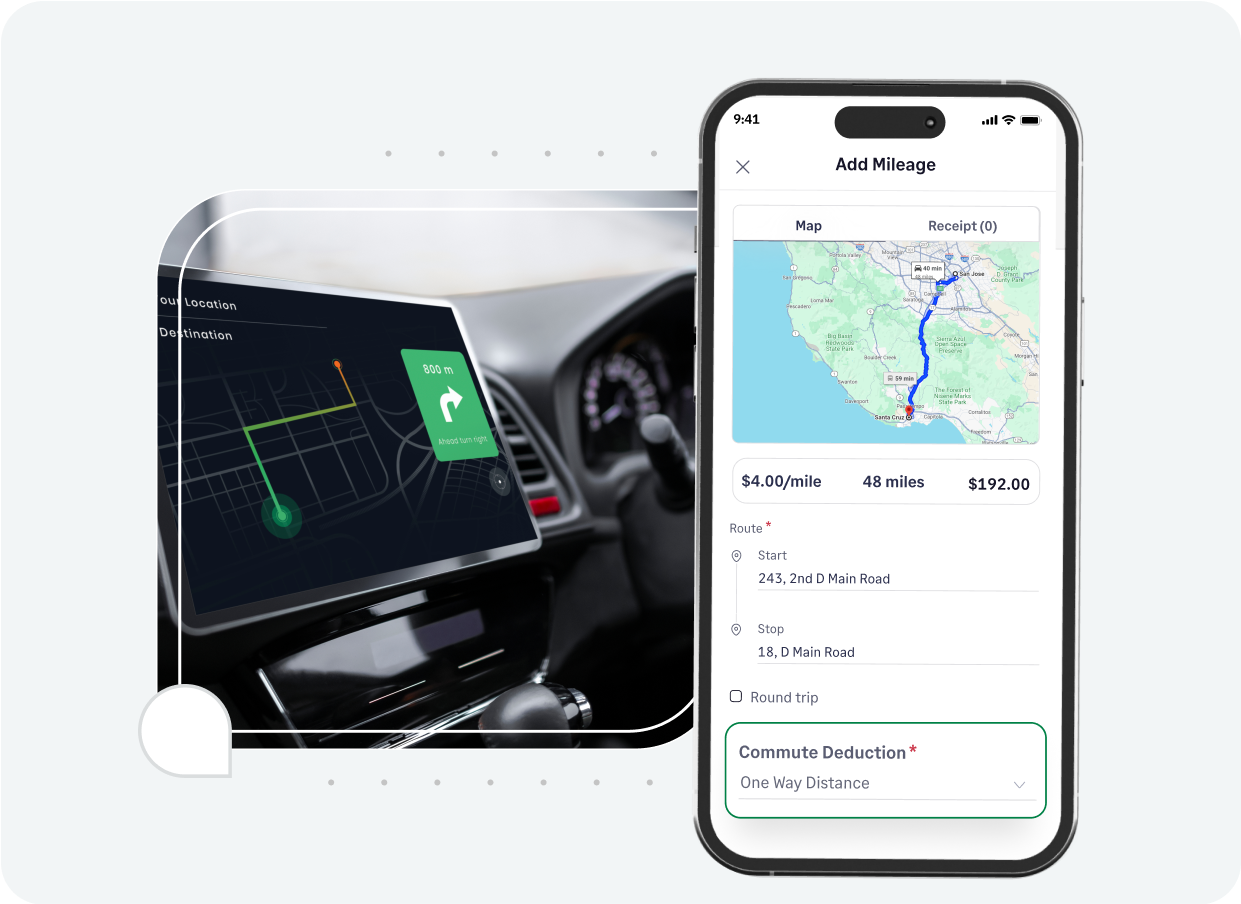Navigating business travel in Alaska, with its vast distances and unique logistical considerations, often involves the use of personal vehicles.
Understanding the framework for mileage reimbursement is therefore crucial for both businesses striving for fair compensation and employees seeking equitable repayment for work-related travel expenses in Alaska.
The federal government, through the Internal Revenue Service (IRS), provides a frequently updated standard mileage rate that serves as a national benchmark. For the year 2025, the IRS has established the standard rate for business use of a personal vehicle at 70 cents per mile. This is an increase from the 67 cents per mile rate that was in effect for 2024.
While Alaska does not have a specific statute mandating that all private employers use this IRS rate for general business travel, many companies in the state opt to do so. This adoption is often driven by:
- The IRS rate provides a clear, consistent, and widely recognized basis for reimbursement calculations.
- The favorable tax treatment is associated with an accountable plan, where reimbursements at or below the federal rate are typically non-taxable to the employee and deductible as a business expense for the employer.
As of January 1, 2025, the key IRS standard mileage rates are:
- 70 cents per mile for business use of a vehicle.
- 21 cents per mile for medical or moving purposes (note: the deduction for moving expenses is currently limited to active-duty members of the U.S. Armed Forces).
- 14 cents per mile driven in service of charitable organizations.
Other relevant rates in Alaska include:
- Alaska State Employee Rate: The State of Alaska generally aligns its mileage reimbursement rate for state employees using personal vehicles for official duties with the prevailing IRS standard business rate, as outlined in the Alaska Administrative Manual (AAM 60). Therefore, for 2025, this rate is 70 cents per mile. Specific lower rates may apply if a state vehicle was available but declined by the employee.
- Workers' Compensation Medical Travel: The Alaska Workers' Compensation Board sets the mileage reimbursement rate for injured workers who must travel to obtain necessary medical treatment. Effective January 1, 2025, this rate is 70 cents per mile (it was 67 cents per mile in 2024).
For historical context, here are the IRS standard business mileage rates from recent years:
Alaska Mileage Reimbursement Calculator
Efficiently estimate your mileage reimbursement with our user-friendly Alaska Mileage Reimbursement Calculator.
How to Use the Calculator:
- Select the correct tax year: Choose the year for which you are calculating reimbursement (e.g., 2025, 2024), as IRS rates are subject to annual updates.
- Input your business miles: Enter the total number of miles driven for business purposes using your personal vehicle.
- Calculate your reimbursement: The calculator will automatically apply the official IRS standard mileage rate for the selected year to display your estimated reimbursement amount.
This tool is designed to provide a quick and accurate estimate based on federal standards, serving as a valuable resource for managing travel expenses in Alaska.
Calculate
Results
Some Important Alaska Mileage Reimbursement Laws
While Alaska does not mandate a universal mileage reimbursement rate for all private employers, several state laws, particularly those concerning wages and workers' compensation, significantly influence how these expenses should be addressed:
1. Alaska Wage and Hour Act (AS 23.10.050 - AS 23.10.150)
Alaska's minimum wage is $11.91 per hour as of January 1, 2025, and is adjusted annually for inflation.
A critical aspect of this act is that employers cannot make deductions from an employee's wages for expenses that are primarily for the employer's benefit if doing so would reduce the employee's earnings below the required minimum wage or any overtime compensation due. Unreimbursed mileage could fall into this category.
Notably, Alaska does not allow for a tip credit; all employees must receive the full minimum wage.
2. Workers' Compensation (AS 23.30)
Alaska law ensures that employees who are injured on the job are reimbursed for reasonable and necessary travel expenses incurred to obtain medical treatment.
The mileage rate for this is set by the Workers' Compensation Board and aligns with the IRS standard rate, meaning it is 70 cents per mile for 2025.
3. Absence of General Private Sector Reimbursement Mandate
Beyond the implications of the Wage and Hour Act regarding deductions and minimum wage, there isn't a specific Alaska statute compelling private employers to reimburse mileage at a particular rate for general business use. Therefore, specific company policy often dictates these practices.
4. State Employee Travel Regulations (AAM 60)
The State of Alaska has comprehensive travel regulations for its own employees, which includes mileage reimbursement generally at the IRS standard rate. This establishes a benchmark for reasonable reimbursement within the state.
Alaska Mileage Reimbursement Law vs. Federal Law
In Alaska, the framework for mileage reimbursement is distinctly shaped by strong state labor laws, particularly its annually adjusted minimum wage and specific public sector reimbursement practices, all while operating within the broader context of federal guidelines.
Fair Labor Standards Act (FLSA)
The FLSA is the primary federal statute in this domain. It establishes the national minimum wage ($7.25 per hour) and, crucially, dictates that an employee's wages cannot effectively fall below this federal minimum due to unreimbursed business expenses, like mileage, that benefit the employer.
If such costs were to depress an employee's pay below this threshold, the employer would need to provide adequate reimbursement.
Alaska's State Laws
The state laws introduce several unique and often more stringent considerations:
- The state's minimum wage ($11.73 per hour in 2024, with annual inflation adjustments) is notably higher than the federal rate. This means the primary obligation for Alaska employers is to ensure that unreimbursed mileage expenses do not compromise this higher state minimum wage. The Alaska Wage and Hour Act also has provisions against deductions for the employer's benefit if they cut into minimum or overtime pay.
- Alaska law explicitly ties the mileage reimbursement rates for both its state employees and for workers' compensation medical travel to the prevailing IRS standard rate. This creates a strong local precedent for what is considered a reasonable rate.
IRS Regulations
The IRS regulations provide the standard mileage rates (e.g., 70 cents per mile for business in 2025) primarily for federal tax purposes. These are not direct legal mandates requiring employers to pay this exact amount.
However, their practical significance is substantial. If an Alaska employer utilizes an accountable plan and reimburses at or below these IRS rates, the reimbursement is typically non-taxable to the employee and represents a deductible expense for the business.
Given Alaska's own alignment with IRS rates for public sector and workers' comp, this standard carries considerable weight.
In essence, while the FLSA sets a national wage floor, Alaska's higher state minimum wage provides a more immediate and often more protective financial threshold for employees.
Furthermore, the state's direct adoption of IRS rates for official travel and workers' compensation reinforces these federal figures as a strong benchmark for reasonable reimbursement across the state.
How Sage Expense Management (formerly Fyle) Can Automate Mileage Tracking
Streamline your Alaska mileage reimbursement with Sage Expense Management mileage tracker app. Our platform empowers businesses to manage travel expenses with greater accuracy, efficiency, and compliance, freeing up valuable resources.
- GPS-powered mileage capture for accuracy: Automatically logs trip distances using Google Maps, providing reliable and verifiable data for every journey.
- Flexible rate engine for Alaska's needs: Easily configure IRS standards, Alaska's state-aligned rates, or unique company figures, ensuring consistent application.
- Clear separation of commute vs. business travel: Helps define and deduct non-reimbursable personal commute mileage accurately, supporting fair reimbursement practices.
- Automated claims for routine journeys: Allows employees with regular travel routes to set them up once, simplifying future mileage submissions and saving time.
- Built-in controls for policy adherence: Embeds your company's specific expense guidelines to proactively flag any claims that may deviate from established rules or limits.
- Seamless integration with accounting software: Connects directly with popular systems like QuickBooks, Xero, and NetSuite, ensuring smooth data transfer and reducing manual work.
- Efficient payment processing (US only): Offers direct ACH deposit for approved employee mileage claims, ensuring timely and convenient reimbursement.
Sage Expense Management helps Alaska businesses modernize their mileage tracking, ensuring a straightforward and compliant process for everyone involved.


































